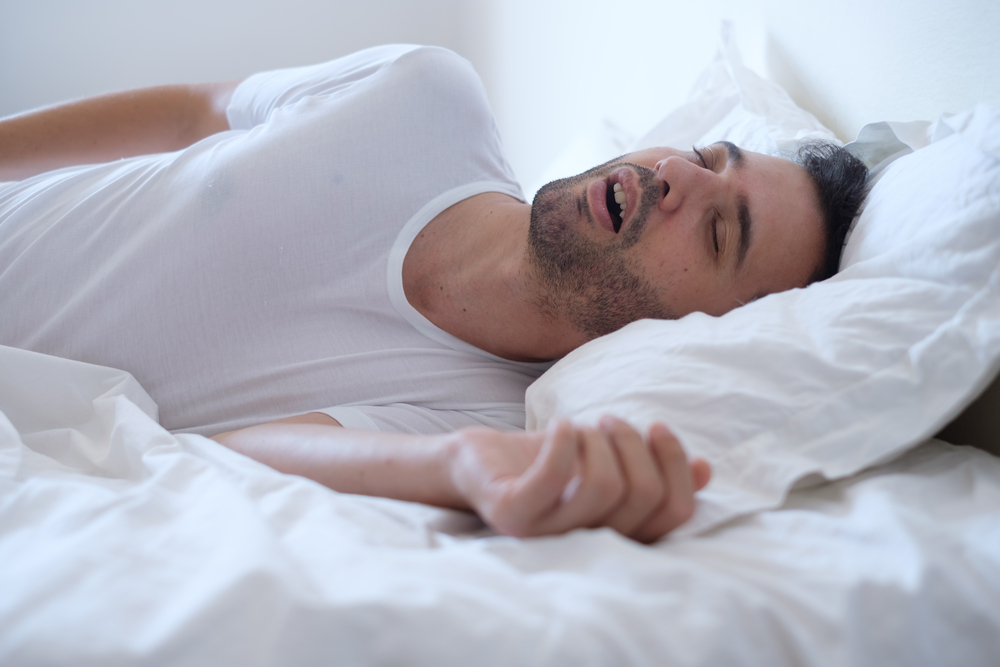 If you’ve been told that you snore a lot during your sleep or your spouse has been snoring loudly recently, there’s a chance that you or your partner may have sleep apnea.
If you’ve been told that you snore a lot during your sleep or your spouse has been snoring loudly recently, there’s a chance that you or your partner may have sleep apnea.
Sleep apnea is a serious sleep disorder and is quite common. Up to 18 million American adults have sleep apnea, according to the National Sleep Foundation. While sleep apnea is not that dangerous in and of itself, it can increase your risk of health complications and interfere with your ability to get a good night’s rest.
But what is sleep apnea, and how can you tell it apart from average snoring? In this article, Branches Dental answers that question!
Understanding Sleep Apnea
Sleep apnea is any number of conditions where breathing during sleep is interrupted or modified. The most common type of sleep apnea is called “obstructive” sleep apnea.
This form of sleep apnea occurs when your airway is blocked by soft tissue due to muscle relaxation during sleep. It’s often characterized by loud snoring, and sudden gasps for air while sleeping.
Because sleep apnea restricts airflow to the brain during sleep, it can prevent you from resting well, and even increase your risk of a stroke or a heart attack.
How To Tell Snoring And Sleep Apnea Apart
So, how can you tell snoring and sleep apnea apart? There are a few things to look for if you think that you or a loved one may have sleep apnea.
- Constant, unceasing snoring – Snoring is common in some people due to colds, allergies, or even for no reason at all. But if loud, constant snoring is occurring every night or almost every night, this may be cause for concern.
- Gasping or pauses in breathing – Sudden gasps and pauses are signs that breathing was interrupted by sleep apnea.
- Daytime sleepiness – Sleep apnea interferes with restful sleep, so some drowsiness or daytime sleepiness may be a sign of sleep apnea.
- Headaches in the mornings – Morning headaches can be caused by blood and oxygen flow to the brain being reduced during sleep apnea episodes.
Common Sleep Apnea Treatments
There are many treatments for obstructive sleep apnea. Minor cases may only require an oral dental appliance or night guard. These appliances look like a mouth guard. When worn, they move the oral tissue to ensure that the airway remains open.
Moderate cases of sleep apnea may require a CPAP (Continuous Positive Air Pressure) machine. These devices include a mask that’s worn on the face during sleep and prevents tissue from collapsing by providing a gentle, continuous flow of pressurized air throughout the night.
Serious cases of sleep apnea may require surgery to remove tissue from the mouth, throat, and airway, though this is quite rare.
Think You Might Have Sleep Apnea in Anna, TX? Come to Branches Dental Today!
At Branches Dental, we have the best dentists in Anna for sleep apnea treatment. At our family-oriented dental practice, we can help you learn more about sleep apnea, common treatments and your options. We can even refer you to a sleep specialist, if necessary.
So don’t let sleep apnea interfere with your ability to get a restful, healthy night’s sleep. Contact us for an appointment now at 972-924-0330, or drop by our Anna office at 2100 W. White Street, Ste 100, Anna, TX 75409.

Comments are closed.